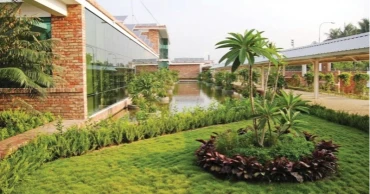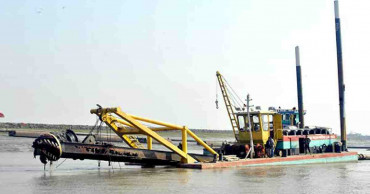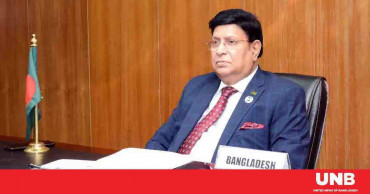sustainable
Welcoming 2024: Fun and Eco-Friendly Alternatives to Fireworks
The arrival of New Year's Eve traditionally brings with it spectacular fireworks displays. While visually impressive, these celebrations often have unintended consequences, such as disturbing wildlife, contributing to air pollution, and posing fire hazards. As environmental awareness grows, there's a shift towards finding safer, more sustainable ways to celebrate. This guide offers a range of creative and eco-friendly alternatives to fireworks for welcoming the New Year, ensuring that your celebrations are not only memorable but also kind to our planet and its inhabitants.
Exploring Creative and Sustainable Ways to Ring in 2024 without Fireworks
1. Theme-based Home Party
Transform your home into a magical celebration space with a chosen theme. Consider superheroes or fairy tales for kids, and perhaps a nostalgic retro or glam theme for adults. Encourage guests to dress in theme-specific attire. Decorations and snacks tailored to your theme can elevate the experience. This personalized, home-based party offers a unique, intimate, and cost-effective way to usher in the new year.
2. Epic Movie Marathon
Plan a movie marathon night with a specific theme like classic comedies, epic adventures, or family favorites. Set up a comfortable viewing area, either indoors with blankets and pillows or outdoors with a projector under the stars. Create a mix of films to cater to different age groups, ensuring everyone has a favorite to look forward to. Don't forget the popcorn machine and a snack bar to mimic a real cinema experience!
Read more: 10 Foods to Eat for Good Luck in New Year
3. Culinary Delights: Cooking and Potluck
Why not make the kitchen the heart of your New Year's celebration? Arrange a group cooking session where each participant can contribute to making a special dish. For a more relaxed approach, host a potluck dinner where everyone brings their signature dish. This not only makes for a diverse spread of culinary delights but also sparks conversations and recipe exchanges. Combine this with music, a dance area, and a storytelling corner to reminisce memories, experiences, and adventures.
4. Competitive Game Night
Organize a game night featuring a variety of games – from classic board games and card games to interactive video games and outdoor sports if weather permits. Tailor the game selection to suit all ages and interests, ensuring everyone has a chance to participate. Offer small prizes for winners to add an extra layer of excitement to the competition.
5. Showcase of Talents: Music, Dance, and More
Create a home concert or talent show where guests can perform their favorite songs, dance routines, or even magic tricks. This is a great opportunity for everyone, especially children, to showcase their talents and enjoy the spotlight. You can also curate playlists for a dance party, ensuring there’s something for every musical taste.
Read more: IGP calls for flawless security over Christmas and New Year
2 years ago
Sustainable fashion: Bangladesh's RMG sector leads with 24 new LEED green factories in 2023
In 2023, Bangladesh's readymade garment (RMG) industry marked a significant stride in sustainable fashion, with 24 of its factories achieving LEED certification.
LEED (Leadership in Energy and Environmental Design), the globally recognized green building rating system, underscores a commitment to environmental responsibility and energy efficiency.
This recent certification brings Bangladesh's total to 206 LEED-certified green factories, a testament to the country's dedication to green initiatives within the garments sector, according to BGMEA Director Mohiuddin Rubel.
The BGMEA (Bangladesh Garment Manufacturers and Exporters Association) reports a breakdown of these certifications, with 76 achieving the highest, platinum rating, and 116 receiving a gold rating.
This progress is particularly notable in the context of the global apparel industry's increasing focus on sustainable practices.
Also read: Bangladesh now boasts 206 LEED-certified green factories: BGMEA
Of the 24 newly LEED-certified factories, a majority, 16, were awarded the prestigious platinum rating, while the remaining 8 achieved a gold rating.
Standout performers in 2023 included S. M. Sourcing with 106 points and Green Textiles Limited Unit 4 scoring 104 points. Also noteworthy are Integra Dresses and Knit Asia Limited, both achieving 99 points, Lida Textile & Dying Limited with 97 points, and Liz Fashion Industry Limited scoring 96 points, as detailed by BGMEA.
This achievement positions Bangladesh as a leader in the global sustainable fashion movement, with 54 out of the 100 LEED-certified green factories worldwide located in the country.
This includes 9 of the top 10, and 18 of the top 20 LEED-certified factories globally, according to BGMEA data.
Mohiuddin Rubel, director at BGMEA, highlights this as a potential catalyst for increased investment and partnership opportunities in the Bangladesh RMG industry.
Also read: Milestone for RMG as Bangladesh becomes top source of Knitwear into EU market
The geographic spread of these certifications within Bangladesh further illustrates the RMG industry's widespread commitment to sustainability.
The majority of the 2023 certifications were in Gazipur (15 factories), followed by Dhaka (4), Chattogram (3), and Mymensingh (2). This regional distribution indicates a nationwide embrace of LEED principles in the Bangladesh garments sector.
Currently, over 500 Bangladeshi factories are in the process of obtaining their LEED certification, signaling a robust and ongoing commitment to green practices in the Bangladesh RMG industry.
This move towards sustainable fashion not only aligns with global environmental goals but also positions Bangladesh as a forward-thinking leader in the green manufacturing space.
The significant increase in LEED-certified green factories within Bangladesh's RMG sector in 2023 is a clear indicator of the industry's commitment to sustainable fashion.
With the Bangladesh garments industry taking proactive steps to achieve LEED ratings, it sets a benchmark for environmental stewardship and positions the country as a key player in the global push for more sustainable manufacturing practices.
Also read: Environment-friendly factories, circular economy key to sustainable growth in RMG sector: Speakers
2 years ago
Bangladesh seeks Sweden's continued support to make LDC graduation smooth, sustainable
State Minister for Foreign Affairs Md Shahriar Alam on Tuesday said Bangladesh looks forward to Sweden's continued support to make the LDC graduation smooth and sustainable.
He hoped that Bangladesh's onward march to becoming a reliable partner in the global supply chain can be supported by Sweden.
State Minister Alam reaffirmed the pledge to work together with Sweden for the collective well-being of shared humanity and hoped that the relations between Bangladesh and Sweden would continue to grow in depth and dimensions in the coming days.
Read more: Bangladesh-Sweden further cooperation can yield more mutual benefits: BGMEA
He attended as the guest of honour at a reception on the occasion of Lucia, as well as the celebration of 50 years of bilateral relations between Bangladesh and Sweden.
Sweden's Ambassador to Bangladesh, Alexandra Berg von Linde, hosted the reception.
The Lucia reception, one of the foremost cultural Swedish traditions, was held at Edge Gallery at Bay's Edgewater in Gulshan 2 of the capital.
The State Minister said that Lucia reception marks the end of the year, and looking back on 2022, Sweden and Bangladesh relations have strengthened, with new avenues of cooperation emerging as well.
He recalled Sweden was among the first European countries to have recognised an independent Bangladesh in early 1972.
The government and people of Sweden stood by Bangladesh as the country embarked on a difficult reconstruction and rehabilitation journey under the leadership of the Father of the Nation, Bangabandhu Sheikh Mujibur Rahman.
Sweden has been a steadfast partner in Bangladesh's development trajectory in the last five decades, with active footprints in good governance, labour rights, trade, investment, disaster risk reduction, environmental protection, education, cultural cooperation, and humanitarian assistance.
Lucia is an old tradition celebrated all over Sweden in the making of Christmas.
Read more: Sustainability an important part of our future bilateral ties with Bangladesh: Swedish Minister
As a part of this, Sweden Embassy in Dhaka organised the celebration. Diplomats, editors and political leaders, among others, were present.
3 years ago
BGMEA, Amfori to work together promote Bangladesh as safe, sustainable sourcing destination
Brussels-based Amfori – which represents over 2,400 retailers, importers, brands and associations from more than 40 countries – and the Bangladesh Garment Manufacturers and Exporters Association (BGMEA) have discussed working together to promote Bangladesh as a safe and sustainable apparel sourcing destination.
Saiful Millat, network representative of Amfori, met with BGMEA President Faruque Hassan in Dhaka Wednesday.
Read: BGMEA seeks support of IMF to realize strategic vision of RMG industry
They discussed how BGMEA and Amfori can team up to support the apparel industry of Bangladesh in its efforts to pursue the vision of sustainable growth in the coming years.
Also, Saiful Millat said Amfori President Linda Kromjong would attend the "Made in Bangladesh Week" scheduled to be held on 12-18 November 2022 as she was invited by the BGMEA earlier.
3 years ago
IBBL recognised as best sustainable bank
Islami Bank Bangladesh Limited has been recognised as best sustainable bank by Bangladesh Bank.
Fazle Kabir, Governor, Bangladesh Bank handed over the crest of recognition to Mohammed Monirul Moula, Managing Director and CEO of Islami Bank at Bangladesh Bank head office on Thursday, said a media release.
A.K.M Sajedur Rahman Khan & Abu Farah Md. Nasser, Deputy Governors, Nurun Nahar, Executive Director and Khondkar Morshed Millat, Director of Bangladesh Bank were also present on the occasion.
Bangladesh Bank has published such rating based on four indicators such as Sustainable Finance, Corporate Social Responsibilities (CSR), Green Refinance and Core Banking Sustainability.
A total of 10 private banks in Bangladesh were recognised in the Sustainability Rating-2021.
3 years ago
Success of businesses drives growth, help creates jobs: ICCB
International Chamber of Commerce-Bangladesh (ICCB) has said the success of businesses can drive the growth of a country, help achieve overall sustainable development and create employment opportunities.
“Businesses are the driving force for any economy, be it capitalistic or socialistic,” according to the editorial of the current News Bulletin (July-Sept’ 2021) of the ICCB released on Sunday.
ICC Bangladesh remembered with gratitude the legendry businesspeople, including those who have passed away, for their visionary leadership and farsightedness in creating corporate culture and making the Bangladesh economy one of the fastest growing in the world.
Entrepreneurs are frequently thought of as national assets to be cultivated, motivated and remunerated to the greatest possible extent. “They’ve the ability to change the way we live and work at local, national and international levels,” said the ICCB editorial.
READ: ICCB seeks climate change mitigation, role of private sector
Over the past five decades, Bangladesh has transformed itself from being a "basket case" to one of the fastest growing economies in the world. Before the onset of the Covid-19, the economy was growing rapidly, recording an annual expansion in the range of 7- 8% for sometimes, ICCB observed.
After the partition of India and Pakistan in 1947, then East Pakistan, now Bangladesh, was not an ideal place for Bangladeshi entrepreneurs to do business or establish industries as the West Pakistanis (now Pakistan) were in complete control of the country and the economy.
“Bangladeshis were mainly in the mid- and lower-level service. However, some of our leading businessmen have made it possible to show the world that Bangladeshis are capable of becoming successful entrepreneurs,” the editorial reads.
Late Abul Kasem Khan from Chattogram, a district judge in 1934, was probably the first Bangladeshi to enter business leaving a job, ICCB said, adding that he established various types of industries and formed AK Khan Group in 1945 and there were only a few business entities owned by local entrepreneurs during the British era.
Of them, the oldest was the family trading business of Late Anwar Hossain (since 1834) and Founding Chairman of Transcom Group Late Latifur Rahman’s family (having a tea estate since 1885), the editorial reads.
Since 1947 till the independence of Bangladesh in 1971, only a few small industries, tea gardens and two commercial banks and a small number of jute and textile mills were owned by Bangladeshis. After independence all industries, banks and big commercial entities were nationalized, according to ICCB.
However, the change in government policies in mid-70s for adopting privatisation, export liberalisation and import-substitution created the opportunity for enthusiastic businessmen to begin their entrepreneurial journey.
READ: Bangladesh made spectacular economic progress despite limited resources: ICCB
ICCB President and Chairman and CEO of ETBL Holdings Mahbubur Rahman along with Transcom Group Chairman Latifur Rahman, Square Group Chairman Samson H. Chowhdury, Anwar Group Chairman Anwar Hossain, Apex Group Chairman Syed Manzur Elahi and a few other business leaders contributed towards the change in policy decision of the government; for privatisation.
In less than 40 years, the garment industry of the country has emerged as one of the nation's success stories in recent decades, ICCB said.
It is the second-largest RMG exporter globally earning over $35 billion a year from exports. A number of pharmaceutical companies have also started exporting medicines to 119 developed and developing countries.
The country also exports leather products, handicrafts, agro-products, ocean-going vessels and software, among others. The total yearly export earning was US$ 38.76b in FY21.
The private sector is responsible for 90 percent of jobs in the developing world.
In Bangladesh, the “private sector which already accounts for more than 70 percent of all investment, supported by a strong financial sector, will need to play an important role in spurring the recovery so the country can grow, export and create quality jobs,” according to Alfonso Garcia Mora, IFC's vice president for Asia and Pacific.
The businesses played the leading role in achieving the success, says the editorial.
4 years ago
Experts seek master plan for sustainable river dredging
Experts at a webinar on Saturday urged the government to prepare a master plan for ensuring sustainable river and canal dredging and their management in a bid to accelerate further economic advancement of the riverine country.
They also said the number of rivers in Bangladesh is declining due to siltation and fall in streamflow affecting waterways that are the cheapest means of transportation.
Under the circumstances, the experts called upon the government to make an adequate allocation for river dreading and proper river training.
Also read: Capital dredging project: First phase set to miss deadline
Dhaka Chamber of Commerce & Industry (DCCI) arranged the webinar titled ‘Sustainable River Dredging: Challenges and Way Forward'.
Water expert and Brac University Professor Emeritus Ainun Nishat presented the keynote paper at the programme while State Minister for Shipping Khalid Mahmud Chowdhury joined it as the chief guest.
Dr Nishat said there are two types of dredging like maintenance dredging and capital dredging. “A master plan should be prepared for river and canal dredging in Bangladesh.”
He said dredging should be done in a sustainable manner so that the economy can be benefited as rivers not only carry water but also carry lives. “For an efficient river management, special emphasis must be put on maintenance dredging.”
Stating that the private sector can play a major role in dredging operation, the water expert said also underscored the importance of investments in dredging and de-siltation works. “Private dredging operators must be trained on sustainability issues. PPP can be a useful model for river dredging, sand extraction, land recovery, land accretion and land reclamation.”
Also read: Kaladumur River dying; immediate dredging needed
Dr Nishat said the current practice of dredging operations, both capital and maintenance, need to be evaluated urgently. “Rules and guidelines for sand dredging from river beds should be updated and followed strictly.”
He suggested establishing a river training institute to create skilled manpower for river management.
Institute of Water Modelling (IWM) Executive Director Abu Saleh Khan said the total river basin system should be analysed in an efficient manner. “Dredgers are now ultramodern and highly efficient but they need proper training for skill development and capacity building.”
He also focused on sustainable dredging and long-term strategic planning in the maritime sector. “For sustainable dredging, dredgers have to have the idea on soil condition, river system, stream nature and ecological system. There should have been a post-dredging evaluation system in the policy.”
State Minister for Shipping Khalid Mahmud Chowdhury said the government has been working sincerely to ensure effective river management as per its delta plan. “We’ve a plan to make 10,000 km inland river ways navigable.”
He said the capacity of Mongla Port has now increased manifolds, easing the pressure on Chittagong port. “We’ve limitations and challenges but we must have to manage our rivers through efficient dredging as these’re our natural assets.”
The junior minister said the government has been working on sustainable river dredging both in the form of capital dredging and maintenance dredging and 35 more dredgers will be procured soon.”
As per the delta plan, he said, the government is firmly committed to developing the riverine system in the country. “We invited the private sector to come forward with more investments, even in the PPP format, to materialize the delta plan.”
DCCI President Rizwan Rahman said waterways play a diverse role in the economy of Bangladesh as it is a riverine country.
“It’s a high time to improve the waterways for the sake of both industrial and socioeconomic development of the country as Bangladesh is poised to become a developing country by 2026. The 24,000 km of waterways come down to 6,000 km in monsoon and 3,600 km during the lean period due to dynamic characteristics of the rivers and its effect falls into the economic and ecological state of the country,” he observed.
He said navigable waterways have manifold positive cascading effects on the economy as it saves container movement time and ensures comparatively cheaper goods transportation system. “Navigable and well-managed waterways help ease cross-border trade growth with the neighbouring states. But lack of maintenance, weakening upstream flow and human interventions are some of the common problems for declining navigable waterways.”
4 years ago
FM calls for joint efforts to build sustainable resilient future
Foreign Minister Dr AK Abdul Momen on Saturday called on the youths and the civil society to join hands with the government in building a sustainable and resilient future.
"The government is doing its best to tackle the climate challenges,” said Momen, adding “I strongly believe that participation from the youth and civil society can bring the best results for Bangladesh to achieve sustainable solutions."
He was addressing at the Climate Camp 2021, where Nahim Razzaq, MP and Abul Kalam Azad, Special Envoy of Bangladesh Presidency of the CVF also spoke.
READ: COP26: Alok Sharma discusses climate issues with FM
The foreign minister said to create awareness at community level is the first step to bring result in national level.
Individuals, activists, community leaders and youth led organisations can bring solutions through sharing best practices for better adaptation and mitigation, he said.
Dr Momen said, it is the responsibility of every citizen to save the environment, rivers and ponds from pollution.
"Please, don’t throw plastic items, plastic bottles, polythene bags indiscriminately,” he pleaded.
“Stop food waste and food loss, and try to conserve natural resources to help biodiversity. If we all do our part, we are little careful and conscious, we can help our planet earth," he said.
Dr Momen said climate change is a global phenomenon that needs to be addressed through collective efforts and innovative solutions not only internationally or nationally, but also at local and regional levels.
READ: FM, his Australian counterpart discuss progress on TIFA
The impacts of climate change on the environment, the peoples and economies are being felt by every country on earth, he said.
Bangladesh, he said, is experiencing extreme climate change impacts that are affecting national economy and development as well as lives and livelihoods of the people.
On the other hand, Dr Momen said, the outbreak of COVID-19 pandemic has brought greater negative impact on livelihoods of the people as well as the economy of Bangladesh.
Even during COVID 19, he said, Bangladesh has experienced severe floods due to the climate change.
Heavy monsoon rains in upstream regions continue to cause flooding in 30 districts in the north, north-west and south-west of the country, affecting 54 million people.
READ: FM mourns death of Ex. SAARC Secretary General Q.A.M.A Rahim
"Flooding has damaged houses, dykes and embankments, water sources, hygiene facilities, and has severely impacted livelihoods, especially in the agricultural sector," said Dr. Momen.
4 years ago



.jpg)
.jpg)







